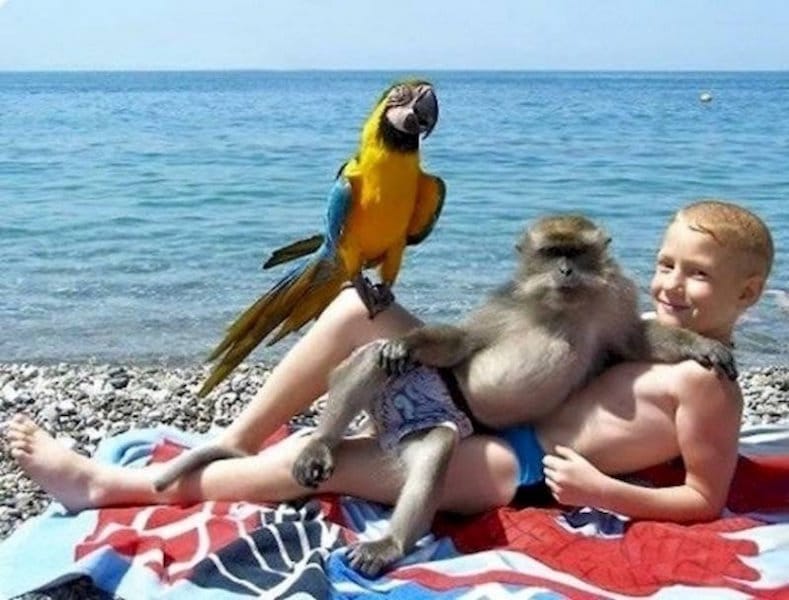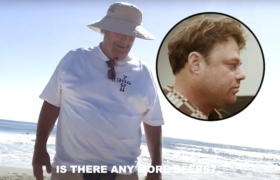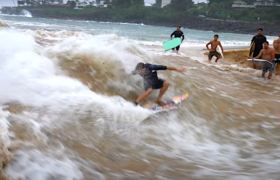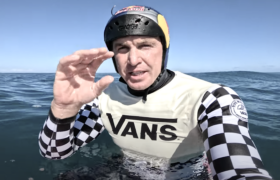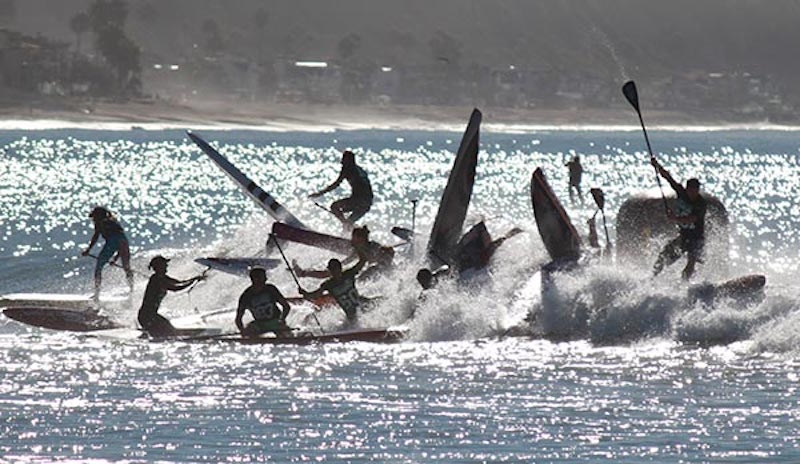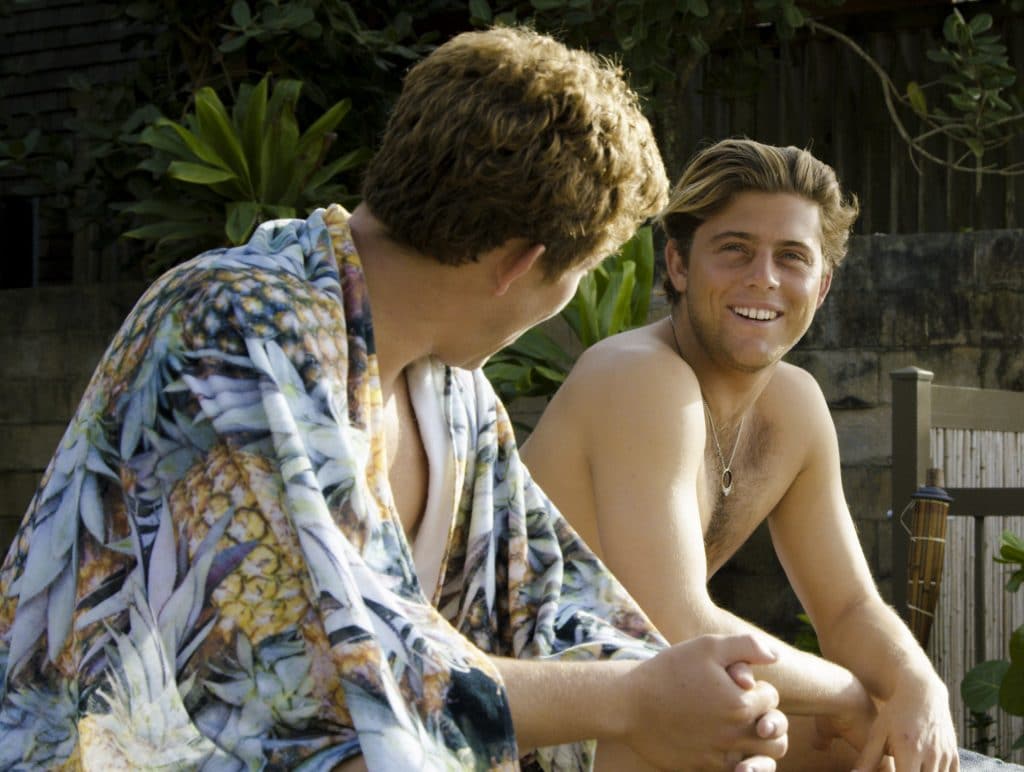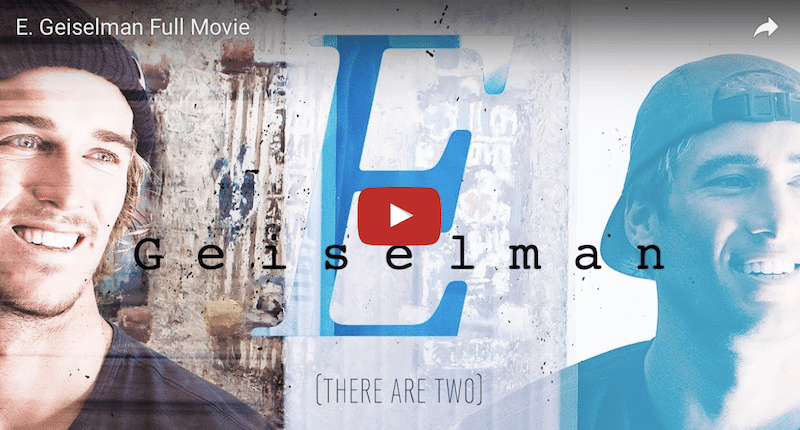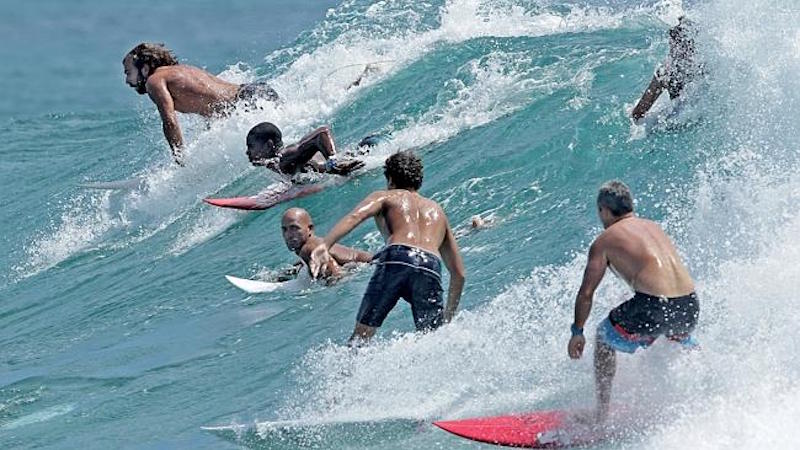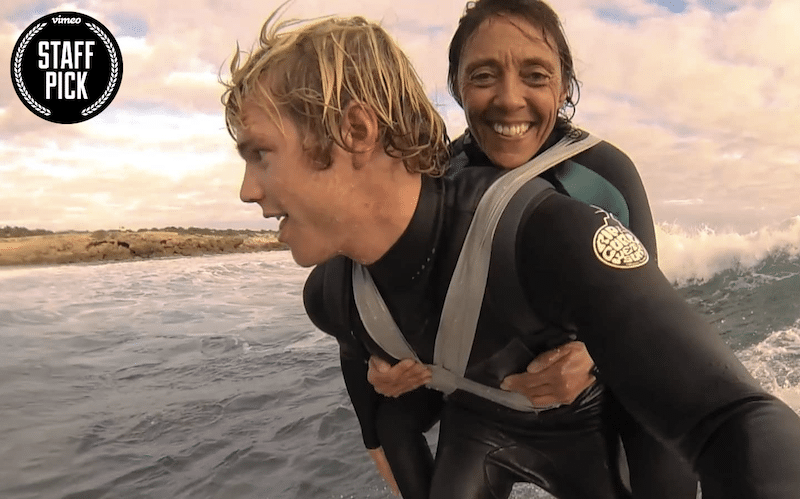"And lo there was a man holding a paddle. His name was death and hell followed him."
Is there anything on this earth scarier than the sight of a wobbly stand-up paddler when you are pushing out into the lineup? Standing shakily on mid-sized yacht, furtively dipping his paddle into the sea. Wobbling. Looking this way and that for divine help but god forsook him long ago.
There, on the horizon, a set wave stands up. There it breaks and comes rushing. There it envelops him and his paddle flies out of his grip and his mid-sized tugboat comes racing for your head. There is no duck dive deep enough, no left or right far enough to escape its plan. It is coming for you.
Certain death!
Thankfully, the cursed SUP has been localized, more or less, to crummy rolling breaks that no surfer should want anyhow. Oh sure, the plague infects some good waves too but doesn’t spread.
Until today.
For I have stumbled upon a secret manuscript called SUP The Mag that the devils read as they plot our demise and it is encouraging them to move out. To conquer.
If you’re reading this right now, there’s a pretty good chance that you became hooked after that first wave. Perhaps you started going to your local break every chance you got. You learned where the best peaks were, how tides and swell direction affected the break, maybe you even got on the good side of the locals.
You felt like a real surfer.
Then you decided to paddle out at a break on the other side of town. You didn’t know anything about it, but what could go wrong? You’re a real surfer after all, you could handle anything.
One hour into your session, you’re asking yourself what the hell happened. It took 20 minutes to paddle out, 20 more to catch your first wave–which you promptly went over the falls on–and worst of all, the locals are all giving you dirty looks.
While it can be very tempting to retreat back to the comfort of your home break, paddling and surfing new spots is the most effective way to get better.
We can simply paddle up and down the coastline until we find a spot that suits our style.
Not only will you find empty breaks scattered all along the coast, but scouting becomes an adventure itself. You’re not just going SUP surfing anymore, you’re embarking on a mission to find a new wave, master that wave, and return home triumphant. Or even better yet, find multiple breaks to surf during one epic session.
It is like reading from Mein Kampf in the original German and now you have been warned and I would like to leave you with a poem in case you think taking no action is the best way forward.
First they came for Cardiff Reef, and I did not speak out—
Because I did not surf Cardiff Reef.
Then they came for Doheney, and I did not speak out—
Because I was not 85 years old.
Then they came for the Turtle Bay, and I did not speak out—
Because I like sheets that don’t smell like mildew.
Then they came for Punta Mita, and I did not speak out—
Because I was too busy drinking margaritas.
Then they came for Costa Rica, and I did not speak out—
Because I was playing with a monkey.
Then they came for Waikiki, and I did not speak out—
Because I was playing with a Japanese tourist.
Then they came for me—and there was no one left to speak for me.
